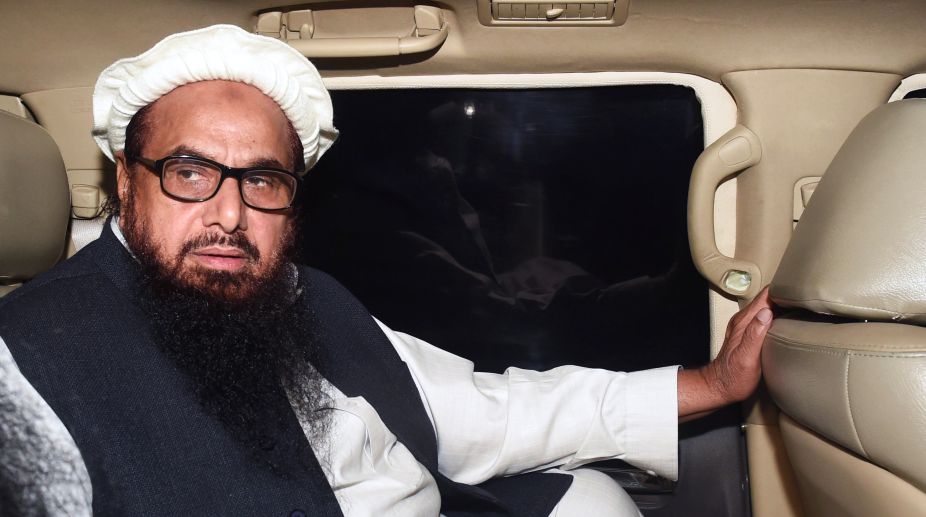As Pakistan has put Mumbai attacks mastermind and Jamaat-ud-Dawah (JuD) Chief Hafiz Saeed under detention, Foreign Office spokesperson Nafees Zakaria says Islamabad "is taking all necessary actions" as per the UN sanctions slapped on the LeT chief, but maintained that India had provided "no material evidence" so far to prosecute those arrested in the 26/11 case trial.
Zakaria said that the Narendra Modi government had "maintained a hostile policy" towards Pakistan.
Touching on several bilateral subjects, including Jammu and Kashmir, Zakaria, who was made Foreign Office spokesperson a year ago, also maintained that Pakistan has been pursuing a policy of "peaceful neighbourhood and shared prosperity," but "unfortunately, our positive overtures have not been reciprocated by India".
The spokesperson stated Islamabad's position on Kashmir — that it is the main bone of contention in bilateral ties and that the Kashmir issue must be resolved in accordance with the UN Security Council's resolutions "which promise right to self-determination to Kashmiris under a UN supervised plebiscite".
He said he hoped that in 2017, "the international community, particularly the major powers, will play a greater role and impress upon India to resolve the Kashmir dispute in the larger interest of ensuring peace and stability in the region".
Asked if the new army chiefs in both the countries would have a bearing on bilateral ties, Zakaria said: "Any change in Pakistan-India bilateral relations is contingent upon Indian behavior". He added that India "must shun the policy of hostility towards" Pakistan and show seriousness in resolving Kashmir and other contentious issues.
To a question on why Pakistan continued to drag its feet on the 26/11 trial, he said that Islamabad had "extended cooperation since the beginning" but that "India inordinately delayed" in providing the necessary information and had not given evidence which met the "requirement of the prosecution" in his country.
"Foreign Secretary Aizaz Chaudhry wrote a letter on September 15, 2015 in this context, and then we received a response a year later from his Indian Counterpart, S. Jaishankar, recognising the need for provision of the evidence. Subsequently, there had been exchanges between the two countries. The contents of the Indian letter are being examined from the legal angle. However, no evidence has been shared with us so far," he said.
On Indian national, Kulbhushan Jadhav's arrest in Pakistan last year, Zakaria said that investigations "regarding the network of Kulbhushan Jhadav are ongoing" and that Pakistan has "irrefutable proof" against him.
"The fact is Pakistan is a victim of Indian state sponsored terrorism. This is also an established fact that Indian intelligence agencies use Afghan soil to launch terrorist attacks in Pakistan, and are involved in constant terror financing and subversive activities within Pakistan since long," he claimed.
Asked whether Pakistan had not been isolated globally on the issue of terrorism, Zakaria sought to dismiss it.
"Given Pakistan's geo-strategically important situation in the region of international interest, the very notion of isolating Pakistan is ridiculous. Indian attempts to isolate Pakistan have miserably failed. If India doesn't want to engage Pakistan, it doesn't mean isolation," he said adding: "Accusing Pakistan of harbouring terrorism is mere rhetoric."











